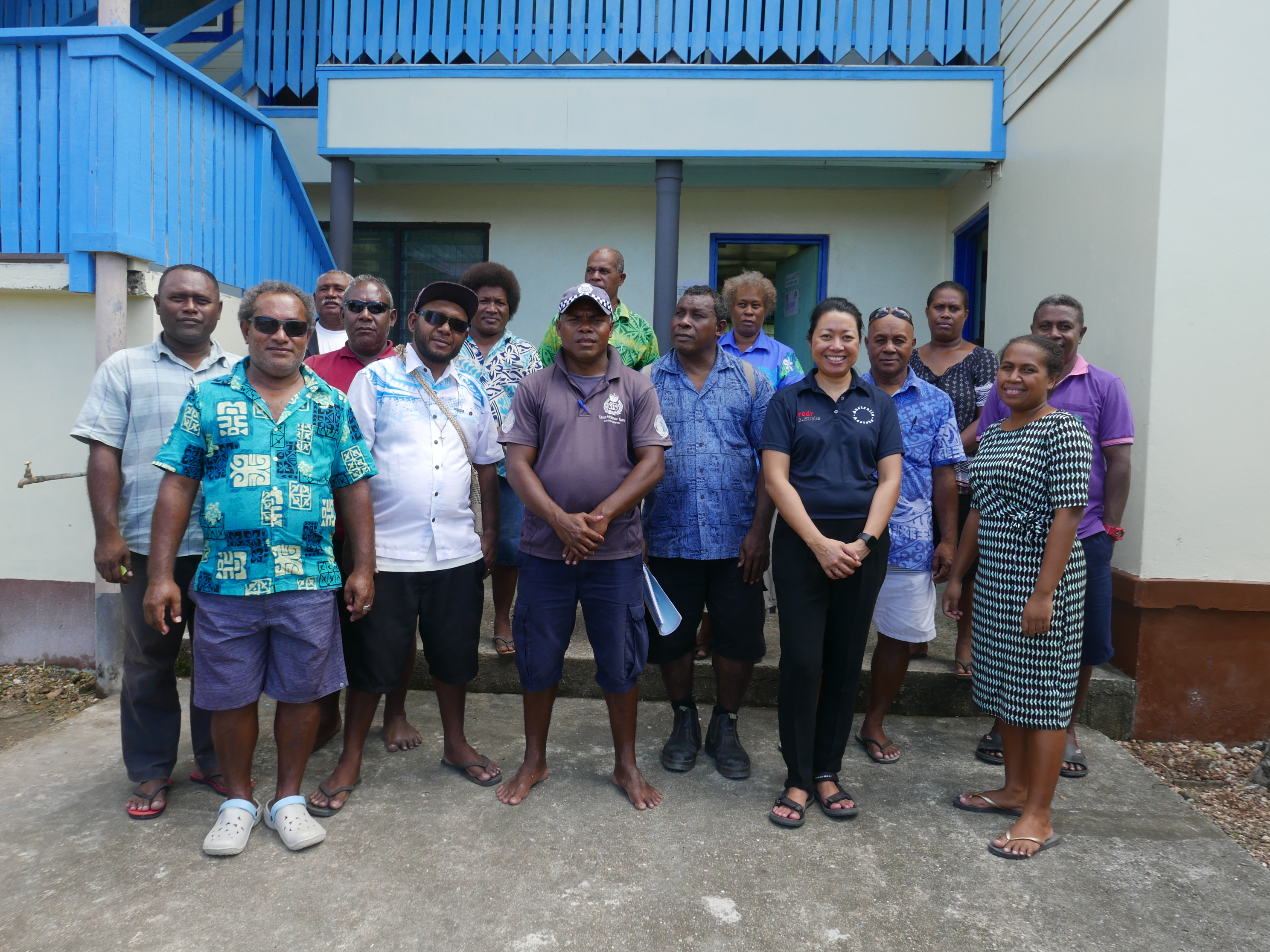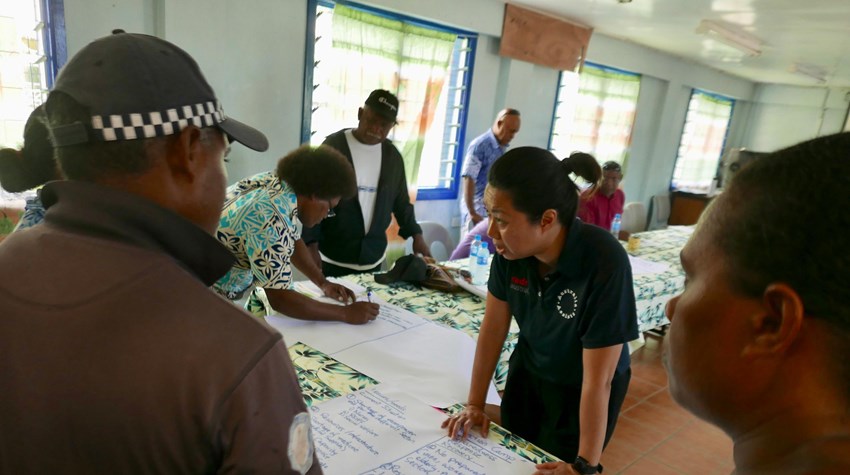In August, RedR Australia deployed Gender and Resilience Specialist Anggie to UN Women in Honiara. Here, Anggie has been working with the Ministry of Women, Youth and Family Affairs to review national strategies and policies to promote the rights of Solomon Islands women and marginalised communities.
This has included facilitating the implementation of UN Women’s Addressing the Gender Inequality of Risk and Promoting Community Resilience in Solomon Islands (GIR) program, supported by the Government of Australia. It involves working with key government agencies to foster female leadership in disaster risk reduction and resilience building in the region.
Solomon Islands is prone to recurring natural disasters, both severe and large in scope, and also experiences the negative impacts of environmental degradation and climate change.
“Global evidence indicates that women are generally disproportionately affected by disasters and have a different capacity to recover,” Anggie said.
“This is particularly true in Solomon Islands, where women experience significant gender equality, lower socio-economic status compared to men, lower access to paid employment, information and early warnings and less control and access to economic resources. They also experience high levels of gender-based violence. In the 2014 Solomon Island floods, women and children represented 96 percent of the casualties.”
Anggie brings a wealth of experience well suited to the role, after bolstering protection and women’s rights during her deployment through RedR Australia to the 2018 Papua New Guinea earthquake response, also supported by Australia Assists.
Recently, Anggie has been travelling to remote areas of Solomon Islands to meet with Isabel Province Protection Committee and other organisations, to collect key information and data about women and marginalised communities that can be fed into a higher policy level.
“A focus of my work is to increase knowledge of and build evidence on the gender dimension of risk. I’m approaching this through review and assessment of national and provincial level strategies, policies, plans, laws and regulations as well as the current processes being employed in data collection, the tools being used and how data is being assessed,” Anggie said.
“Findings from the review will form the basis for the development of gender responsive and socially inclusive recommendations.”
Throughout her deployment, Anggie is also applying a gender lens to disaster risk management. By factoring in the needs of women and marginalised communities in her work, Anggie’s ensuring these are prioritised in humanitarian emergencies, which will help to reduce loss of life in natural disasters.
“Existing socio-economic conditions mean that disasters can lead to different outcomes even for demographically similar communities – but inevitably, the most vulnerable groups suffer more than others. From historical data, disasters reinforce, perpetuate and increase gender inequality, making bad situations worse for women,” said Anggie.
“Meanwhile, the contributions that women can offer to the disaster risk reduction imperative around the world are often overlooked, and female leadership in building community resilience to disasters is frequently disregarded.”
Scheduled to remain in Solomon Islands until the end of November, Anggie says that her work ultimately aims to build the capacity of women and communities across the country.
“In addition to working at the national and provincial level, this GiR Programme in Solomon Islands seeks to build the capacity of local communities, women, and women civil society organisations to participate in disaster risk reduction, resilience building and early warning processes. My role is to identify opportunities to facilitate women’s engagement in these processes wherever possible.”



